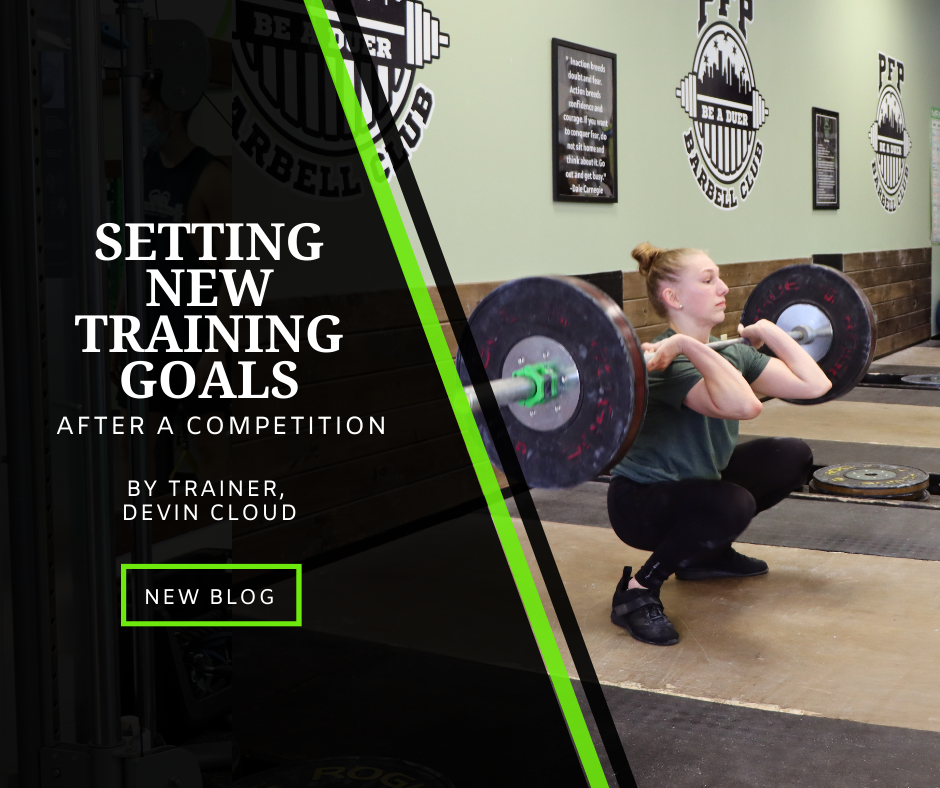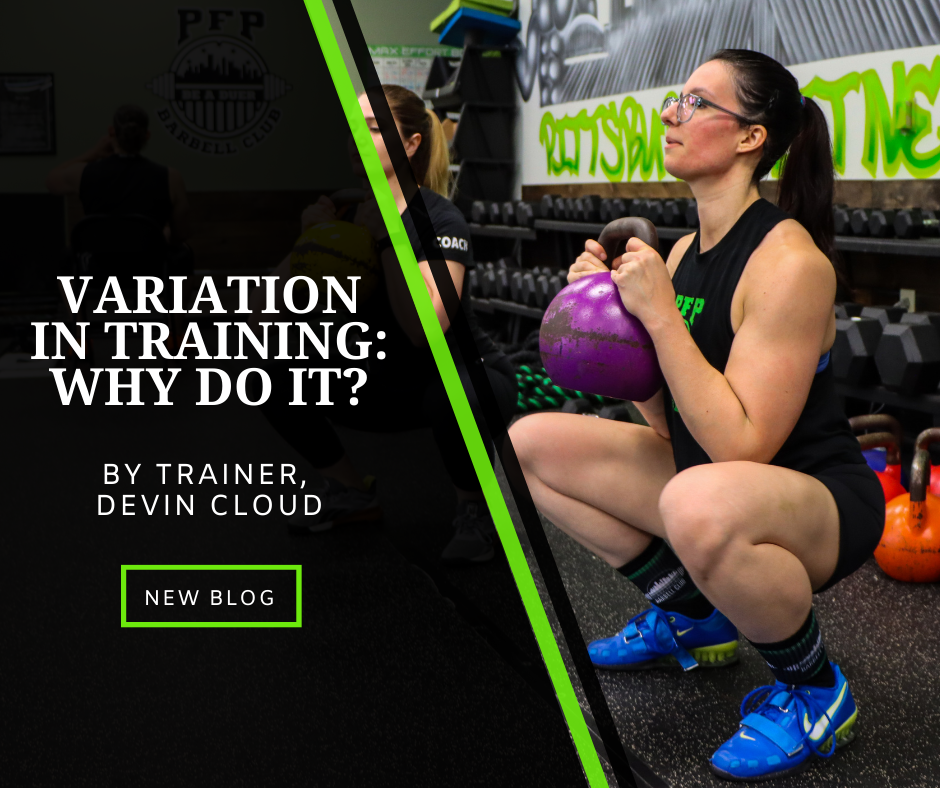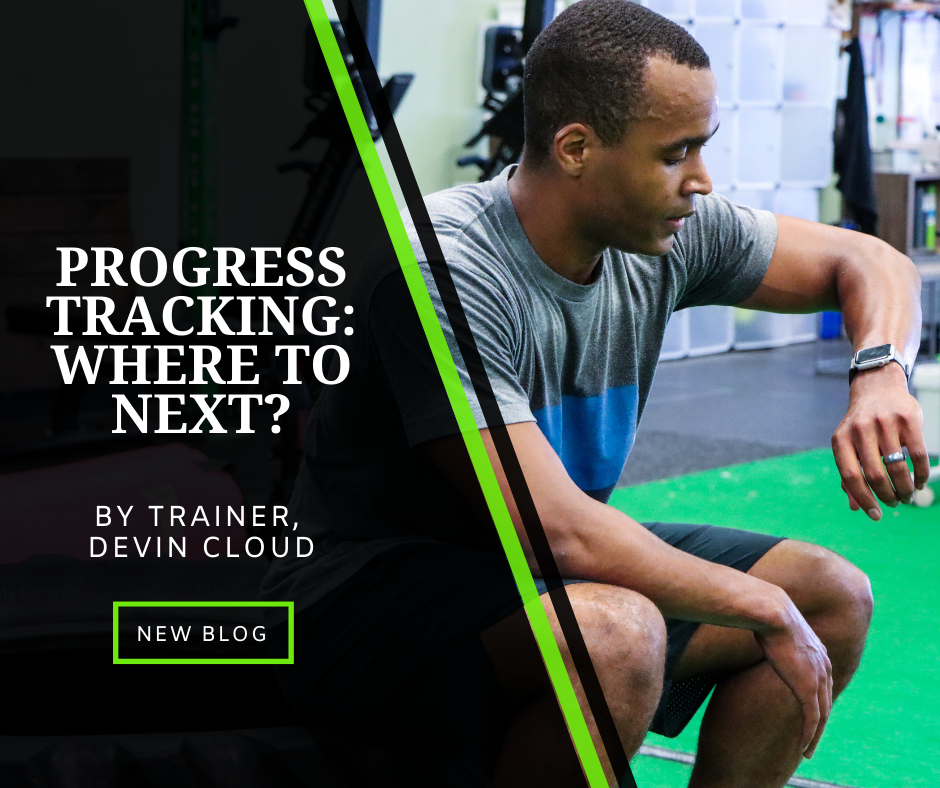
5 TIPS FOR SUSTAINABLE HABIT CHANGE
Changing a habit, whether forming a new one or breaking an old one, can feel overwhelming, intimidating, and slow. With the right strategies, it is possible to make sustainable changes. Habit is about creating systems and setting yourself up for success. Here are five tips backed by psychology and behavior science to help you make positive changes in your habits.

MEASURING PROGRESS: BEYOND THE SCALE
Tracking your progress in the gym is an important thing to do so you can get stronger, feel healthier, and feel a sense of accomplishment in what you’re doing. But what does that look like? The truth is that there are so many ways to measure your progress, and this goes far beyond aesthetics or a number on the scale. I’m going to explain the many ways you can do this so you can ensure you’re getting the most out of your training physically and mentally.

HOW LONG SHOULD YOUR TRAINING CYCLES BE?
When it comes to training, there's a certain point where your body will need some sort of change or variation from what you are currently doing. Why does this happen? Well, our bodies are very adaptable. This means that while something may seem difficult at first if you continue to do that same movement or training, your body will adjust, and it will become easier. This sounds great initially, although, as you have probably noticed, you reach plateaus in your training. Either you stop running that mile faster, or you can't lift that one more pound on the bar. So, what do we need to do to get the results we want? We have to slightly modify our training and add a new stimulus so our body can improve.

WEIGHTLIFTING SEMINAR: What to Expect and What You Can Learn
Weightlifting, as a sport, requires a lot of consistent and focused training over a long period of time. During that long period of time, many lifters will come to points in their training where they feel stuck or confused about what they need to focus on or work on. Weightlifting seminars consist of many lifters and coaches alike coming together at one time to learn and understand new concepts or techniques collectively.

BENEFITS OF SMALL GROUP TRAINING AT PFP
Small group training at PFP is designed to bring people together in a fun environment that offers an introduction to specific skill training or general strength training. Classes consist of everything from weightlifting and kettlebell training to more specific strength training for sports like swimming and running. Let’s take a closer look at what these classes can do for you.

UNDERSTANDING RESISTANCE TRAINING SKILL LITERACY
While physical literacy covers a diverse spread of skill sets in a variety of environments, it is worth asking, “Is there a specific benefit to having youth in gyms and weight rooms?”. The short answer is, yes. The reason is that performing resistance training movements can grow one’s understanding of how to use their muscles and move their body. This skill is called resistance training skill literacy (RTSL).

GOAL SETTING AT PFP
This month at PFP, we introduced a more formalized goal-setting process and instituted weekly check-ins. We have done this to help better frame out workouts, add an additional layer of accountability, and help our coaches communicate better with all of the members at Pittsburgh Fitness Project.

TURNING ACCESSORIES INTO SUCCESSORIES
Accessory work is additional exercises or modalities that are added to your program to help you build strength, improve position, improve technical abilities, or even reduce pain caused by inefficiencies. Whatever accessory work you decide to do it should have a clear purpose for being your program, especially if you have limited time to train.

REPETITION MAXIMUMS & AUTOREGULATION
Everyone loves max-out days at the gym. These days are usually saved for the end points of training blocks and programs. The chance to test your strength and skill can seem very tantalizing because it gives you the opportunity to display the result of all the work you have done. While this is a normal time to use rep maxes, it is not the only use for them. Rep maxes can serve many purposes in a program. Whether it is to get an idea of how you are reacting to the program or indicate that you need change, rep max testing can give you a glimpse of how well or not well your training is going.

GETTING TO KNOW YOUR CARDIO EQUIPMENT
At Pittsburgh Fitness Project, we have a great selection of three types of cardio equipment you may choose from when looking to get the heart rate pumping. These are the air bike, the rower, and the self-propelled treadmill. PFP Method classes regularly use them to complete interval-style training as part of daily workouts. Weight lifters also get moving on cardio equipment for warmups and conditioning circuits. Each style of cardio equipment is unique in the movement patterns they challenge your body with, and because of this, there are a few things to consider when choosing your cardio equipment to make sure YOU have a great workout. Read on to learn what makes each piece of equipment shine.

SETTING NEW TRAINING GOALS AFTER A COMPETITION
Competing in your first competition or even just another one years down the road? Well, then, it's time to analyze and reevaluate your goals and what you’ve done. Whether it is hitting a new maximum weight, a new placing, or a new best time in an event, the time has come to restructure training and set forth new goals for yourself. The purpose at this point is to see what was done well and what might need improvement. This can come in the form of changing training frequency, entire movement patterns, training times, or trying an entirely new training style. Whatever you decide, the first step is the evaluation of yourself and previous training.

WHAT IS DOMS? DELAYED ONSET MUSCLE SORENESS
The term of DOMS is thrown around very casually in physical activity settings, but what is it?

MAXIMAL ATTEMPTS: MENTAL & PHYSICAL APPROACH
You have finally reached the point in your program where you’ll be taking maximal attempts. Whether these are snatches and clean and jerks or bench presses, squats, and deadlifts, they will no doubt challenge what you have worked for up until this point. Maximal attempts are just that, they call for us to exert both our reserve of strength as well as require the highest level of technique and precision that we can muster at that moment. Not only are our physical capabilities challenged but our mental capacity to focus and overcome what is in front of us. It is, without a doubt, extremely difficult but you are more than capable of doing so.

TEEN WEIGHTLIFTING AT PFP BARBELL
The Teen Weightlifting Program at PFP Barbell is designed to introduce teens to barbell exercises and movement in a safe, positive, and supportive environment.

VARIATION IN TRAINING: WHY DO IT?
One of the main reasons people start training/exercising is because it can be fun and challenging. There comes a certain point when you do the same things over and over they can become boring and unfulfilling. This usually leads to people dropping exercise altogether or resorting to making changes with no real plan for why. Another phenomenon that occurs is called the law of accommodation. This basically states that our bodies will eventually adjust to the stimulus we enact on them and that in order to see results, we must keep challenging it. Although, how much change is enough?

PROGRESS TRACKING: WHERE TO NEXT?
We’re moving into spring, and the first portion of your new training plan is done. You’re about to start the next part, but you are unsure how to quantify what you’ve done and how to progress to the next portion of it. There are a number of ways to determine the quantity and magnitude of your training over time. Setting yourself up properly for the future can be difficult without tracking because how can you discern what is too much or too little?

THE DOMAINS OF PHYSICAL LITERACY
Physical Literacy is a relatively new topic in the health and wellness world. The term was first coined by Dr. Margaret Whitehead, a physical education teacher at the time, in 1993. She defined physical literacy as motivation, confidence, physical competence, knowledge, and understanding to value and take responsibility for engagement with physical activity throughout life.

GET TO KNOW OUR TRAINERS: ANDREW DUFF
In my personal training career, I have experienced a wide variety of people. I have seen old and young athletes and non-athletes. I have worked with people that had very serious and particular goals, as well as people with very general goals. In any case, what I have learned is that it’s not a person's goals, background, or even personality that influences how I view working with them. Rather it is the quality of our communication and the relationship we build.

GET TO KNOW OUR TRAINERS: AMANDA SERAPIGLIA
Hi, my name is Amanda, and I am one of the newest personal trainers here at PFP! My passion for athletics began at the age of 4 when I started my gymnastics career. Throughout my career, I advanced to compete at the Junior Olympic level 9 Eastern Nationals in 2018. After retiring from gymnastics, I kept engaged in the sport by coaching competitive gymnastics and becoming a mentor to girls competing in the sport.

GET TO KNOW OUR TRAINERS: DEVIN CLOUD
Hello everyone! My name is Devin, and I’m a weightlifting coach/personal trainer here at Pittsburgh Fitness Project. I look forward to helping you attain whatever it is you desire when it comes to your training. Making a plan and setting up goals can be daunting and uncertain, but with a good coach, this becomes a much better process and journey for us to embark on together.
